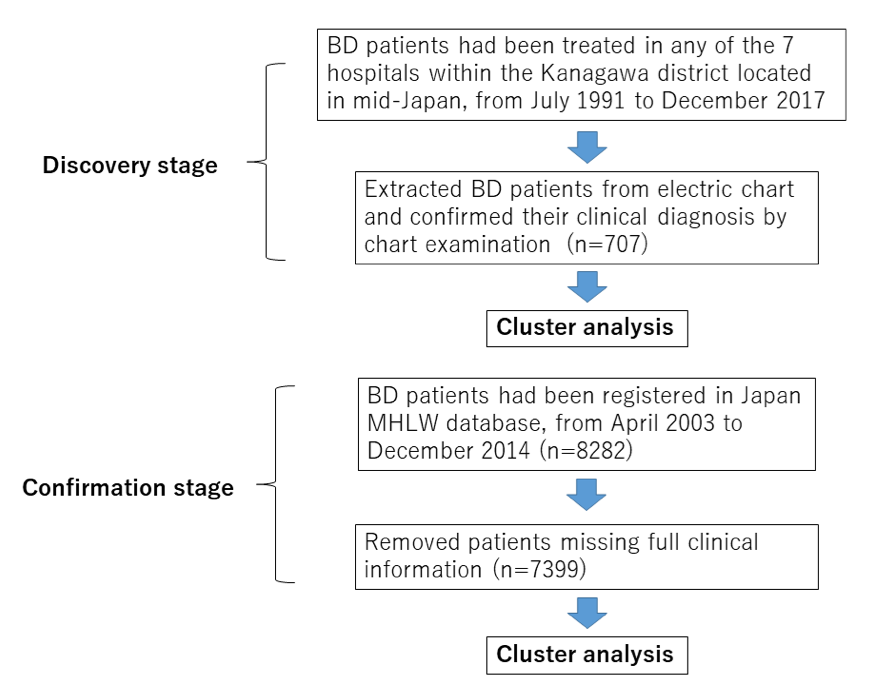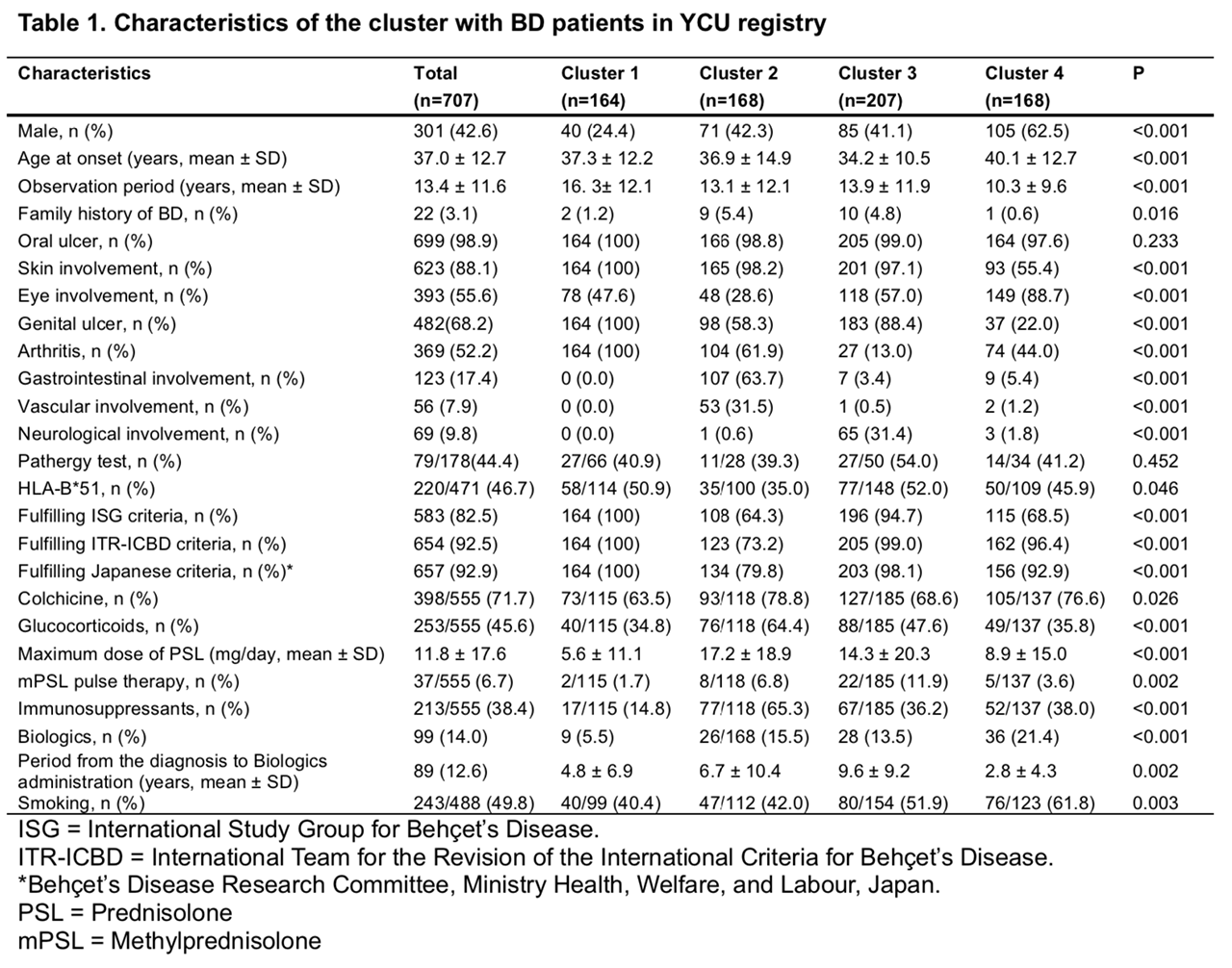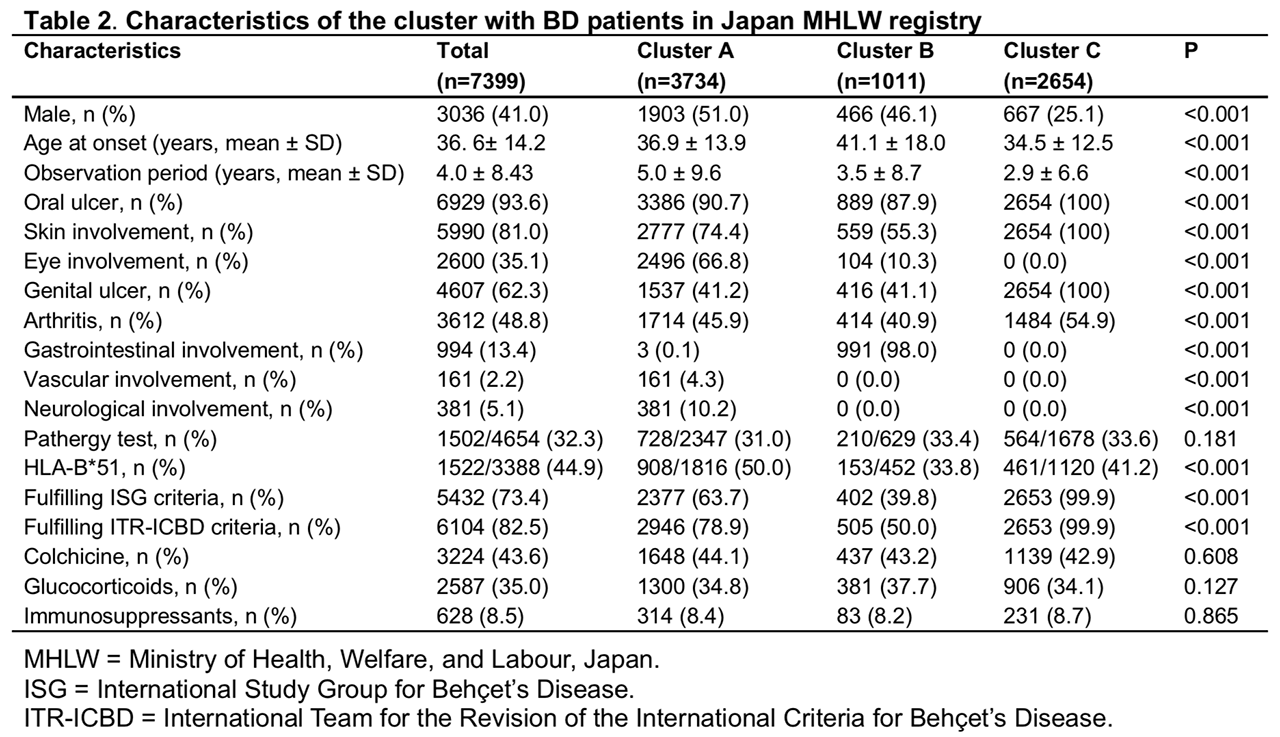Session Information
Date: Monday, November 11, 2019
Title: Epidemiology & Public Health Poster II: Spondyloarthritis & Connective Tissue Disease
Session Type: Poster Session (Monday)
Session Time: 9:00AM-11:00AM
Background/Purpose: Background: Behçet’s disease (BD) patients with poor prognoses must be identified to receive individualized care.
Purpose: This study aimed to identify a subgroup of BD patients with distinct clinical manifestations.
Methods: Design: This was a retrospective study of regional and nationwide registries.
Setting: This study was performed in Japan.
Patients: A total of 707 patients registered to the Yokohama City University (YCU) regional BD registry between 1990 and 2017, and 7,399 newly registered BD patients to the Japanese MHLW database between 2003 and 2014, were included.
Measurements: For the discovery stage, YCU registry data on the clinical phenotype of BD, drug use, and HLA-B51 status were obtained. For the confirmation stage, a nationwide registry, including clinical phenotype of BD patients registered < 1 year after BD diagnosis, drug use, and HLA-B51 status, was used. Hierarchical cluster analysis of clinical phenotype and HLA-B51 positivity was independently performed on both populations.
Results: Four different clusters were identified from the YCU registry. Cluster 2 showed higher rates of gastrointestinal (GI) involvement, steroid use, and immunosuppressants, and lower rates of ocular disease, International Study Group criteria fulfillment, and HLA-B51 positivity. A similar GI cluster was identified in the Japan MHLW registry. The evolutional analysis revealed increased rates of the GI cluster in the last 30 years
Conclusion: Clustering analysis identified a distinct GI cluster associated with atypical and severe BD clinical symptoms that are increasing in Japan.
To cite this abstract in AMA style:
Soejima Y, Kirino Y, Takeno M, Kurosawa M, Yoshimi R, Mizuki N, Nakajima H. Identification of a Distinct Intestinal Behçet’s Disease Cluster in Japan: A Nationwide Retrospective Observational Study [abstract]. Arthritis Rheumatol. 2019; 71 (suppl 10). https://acrabstracts.org/abstract/identification-of-a-distinct-intestinal-behcets-disease-cluster-in-japan-a-nationwide-retrospective-observational-study/. Accessed .« Back to 2019 ACR/ARP Annual Meeting
ACR Meeting Abstracts - https://acrabstracts.org/abstract/identification-of-a-distinct-intestinal-behcets-disease-cluster-in-japan-a-nationwide-retrospective-observational-study/



